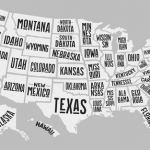Contributor: Lee Grossman
First Thing’s First. What Is Discovery?
A party to a lawsuit has evidence in its possession. The party bringing the lawsuit (filing the claim) has evidence that some wrong occurred. The party defending against the lawsuit has evidence that it did not commit any wrongdoing or, if so, has a legal defense.
Evidence is a thing that helps prove or disprove an allegation made by one party against another. Evidence comes in the form of documents, emails, photographs, written statements, or verbal statements. Discovery is a basic legal term for the process of finding or learning about evidence in your case. The terms “evidence” and “discovery” are often used interchangeably by attorneys and judges. “I have not received your discovery” is commonly used in place of “I have not received your evidence in response to my discovery requests.”
How To Obtain Discovery
North Dakota has several rules of civil procedure governing discovery. Rule 26 is the general rule to obtain discovery. Rule 26(a) sets forth several different methods for one party to obtain discovery from another, including:
- Depositions. A deposition is an opportunity for a party to obtain live testimony from a witness. The testimony is under oath and transcribed by a court reporter. Oral depositions are governed by Rule 30. Though less common, a deposition may also be done by written questions. This is governed by Rule 31.
- Written Interrogatories. Interrogatories are written questions sent by one party to the adverse party. The party who receives interrogatories has to provide written answers to the questions. A party generally has 30 days to respond to interrogatories and object to certain questions. A defendant is not required to answer written interrogatories until 45 days after service of the summons and complaint. Interrogatories are governed by Rule 33.
- Requests for Production of Documents (“RPDs”). RPDs are written requests for certain documents sent by one party to the adverse party. The requests for documents must be specific to the types of documents sought. A statement of “Let me see everything in your possession.” is not sufficient. In addition, a party is only required to turn over relevant evidence in its possession. RPDs are governed by Rule 34.
- Physical or Mental Examinations. If a person’s mental or physical condition is an issue in a lawsuit, the court may order the person to undergo an examination. The party seeking the examination must file a motion with the court explaining the good cause for the examination and identifying the time, place, manner, conditions, and scope of the examination, as well as the person(s) who will conduct the examination. These examinations are governed by Rule 35.
- Requests for Admissions (“RFAs”). RFAs are written statements sent by one party to the adverse party. RFAs will set out a statement (e.g., “The sky is blue.”) and ask the responding party to either admit or deny the statement. RFAs are also used to have a party admit or deny the authenticity or genuineness of documents. RFAs are governed by Rule 36.
Limits On Discovery And Objections
A party is not entitled to ask for every single thing in another party’s possession. Rather, a party is limited to only discovery that is relevant to the lawsuit. Evidence is “relevant” if it has a tendency to make a fact more probable or less probable than it would be without the evidence and the fact in question has an effect on the outcome of the lawsuit. N.D.R.Ev. 401. For purposes of discovery, relevant evidence does not need to be admissible at trial, but rather appear to be reasonably calculated to lead to the discovery of admissible evidence.
When To Get The Court Involved
Frequently there are disputes between the parties on what evidence is relevant to the lawsuit. There are also times when one party flat out refuses to turn over relevant evidence to the other party. In these instances, it may be necessary to get the court involved.
It is important to make several attempts to resolve disputes informally, including emails and phone calls to the adverse party. One way to resolve disputes is to hold a discovery conference and develop a plan. Under Rule 26(f), the parties can agree to meet and discuss any problems that might arise or are arising during litigation. During this meeting, the parties may be able to resolve any issues by agreeing to keep certain evidence confidential or limiting the scope of the requests. If one party sends a meet and confer letter, the parties must meet within 21 days unless otherwise agreed.
If a party still refuses to turn over discovery, or a party believes it is entitled to discovery that the other side is not producing, one of the parties may need to make a motion to the court to compel discovery. It is important for the party making this motion to have first made a good faith attempt to confer with the adverse party about failing to turn over discovery. N.D.R.Civ.P. 37(a)(1); PHI Financial Services v. Johnston Law Office, P.C., 2016 ND 114, ¶ 10, 881 N.W.2d 216. The PHI Court took the following language from federal courts:
“Good faith” under [Rule 37(a)(1)] contemplates, among other things, honesty in one’s purpose to meaningfully discuss the discovery dispute, freedom from intention to defraud or abuse the discovery process, and faithfulness to one’s obligation to secure information without court action. “Good faith” is tested by the court according to the nature of the dispute, the reasonableness of the positions held by the respective parties, and the means by which both sides conferred. Accordingly, good faith cannot be shown merely through the perfunctory parroting of statutory language on the certificate to secure court intervention; rather it mandates a genuine attempt to resolve the discovery dispute through non-judicial means.
Id. (quoting Shuffle Master, Inc. v. Progressive Games, Inc., 170 F.R.D. 166, 171 (D.Nev. 1996)). In my practice, sending emails without receiving a response is not enough to show good faith. Judges want the parties to actually pick up the phone to try and talk with one another.
If good faith attempts are not enough, and the court orders the adverse party to turn over discovery, the party seeking discovery may be entitled to sanctions. The list of sanctions for discovery violations can be found in Rule 37(b).
Contact SW&L
If you need an attorney to help in litigation, call our Business Law Team at 701-297-2890, or send us an email below and one of our attorneys will try and help.
The information contained in this article and on this website is for informational purposes only and not for the purposes of providing legal advice. You should contact an attorney to obtain advice with respect to any particular issue or problem.










